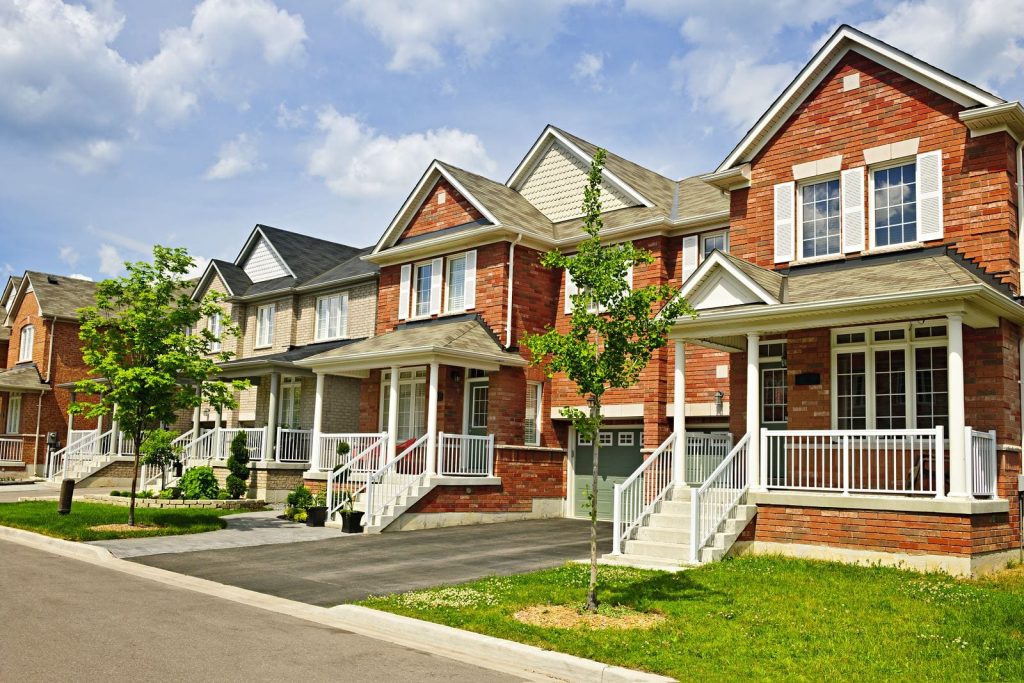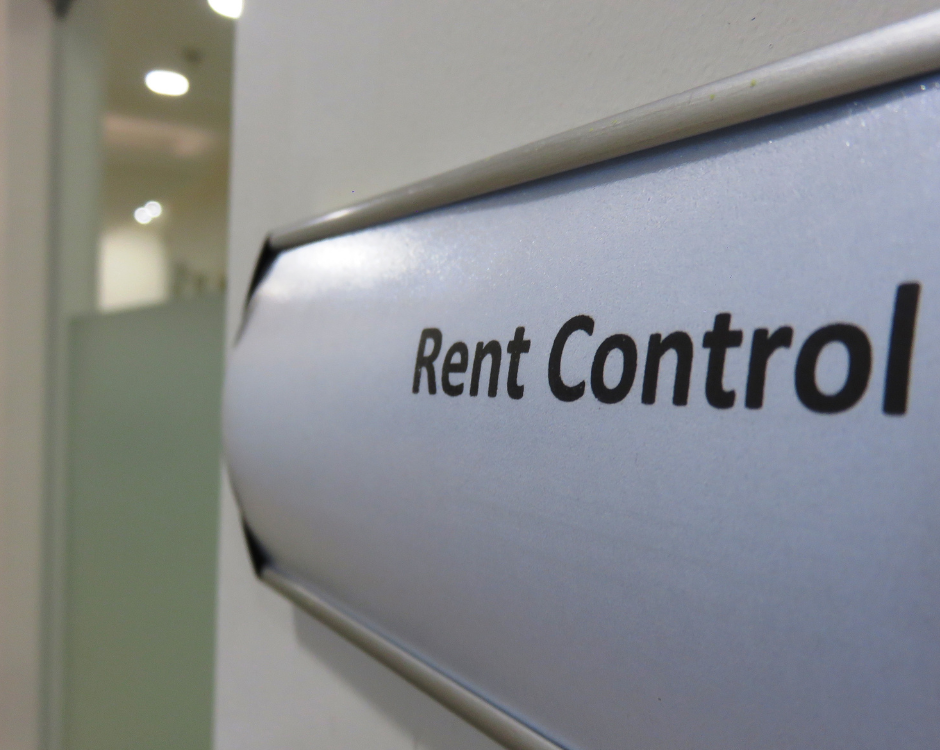How to Get a Mortgage for a Rental Property
September 27, 2022Investment Property Mortgage Rates Vs. Primary Residence
September 28, 2022For many people, a house is the most expensive purchase they will ever make in their lifetime. So, for the average American, buying a house means taking on a mortgage they will pay off over a decade or longer.
A mortgage is a type of loan where you get the money to buy the property but then put it up as collateral while you pay off the loan. That house can be refinanced to purchase another one, and that second house can again be refinanced.
It begs the question: How many properties can you refinance at the same time? To answer that question, you must first figure out how many houses you’re legally allowed to own.

How Many Houses Can You Own?
Real estate is an excellent investment because you can use it to earn passive income, gain a tax advantage, and leverage it to build your wealth. But not everybody can buy even one house, much less multiple houses, in cash. Hence, a mortgage.
Technically, there is no limit to how many houses you can own—you can buy up to 10 properties if you want to. However, there are requirements to take out a mortgage to buy that many homes. And finding a lender that will finance that many properties is going to be a challenge.
Getting a Mortgage for 5 to 10 Properties
Fannie Mae or the Federal National Mortgage Association increased the maximum limit of properties that can be financed to 10 in 2009. However, most banks and lenders continue to honor the traditional four-property maximum because underwriting the mortgage application becomes incredibly complex.
What Is Mortgage Underwriting?
Underwriting is the process a lender or financial institution undertakes to assess the risk associated with a potential lender. The primary consideration is whether they have the ability to pay back the loan on time.
Fannie Mae sets the guidelines for underwriting, which most financial or lending institutions follow. To understand your financial situation or your risk level, they will look into the following:
1. Credit Score
A credit score is a numerical representation of your creditworthiness. It determines the loan terms you may qualify for and at what interest rate. To be approved for a mortgage loan, a good credit score of 680 to 739 will give you a low interest rate of around 4.1%. A bad credit score will merit a high interest rate of 8.6% or even higher.
To finance seven to 10 properties, you must have a minimum credit score of 720. Even then, it won’t guarantee you a low interest rate.
2. Credit Report
Credit bureaus provide credit reports. It contains personal information, credit history, credit inquiries, and public records, along with your credit score. It is another important document that outlines a potential borrower’s creditworthiness.
3. Property
The lender will check if the property you are eyeing matches the amount you want to borrow.
4. Maximum LTV (Loan-to-Value) Ratio
LTV is the ratio of a loan to the value of an asset. The aim is to have a low LTV to get your loan approved and at a lower mortgage rate too. Those with a high LTV ratio may be asked to purchase mortgage insurance to balance the high-risk loan.
To calculate the LTV ratio, follow this formula:
LTV ratio =
For example, you want to purchase a property with an appraised value of $150,000. The down payment is $30,000, which means your mortgage loan is $120,000. What is your LTV ratio?
LTV ratio = x 100
= 0.8 x 100
LTV ratio = 80%
The ideal LTV ratio is 80% or lower. Lenders are wary about a higher LTV ratio because there is a greater risk of loan default—the borrower may stop making payments because they can no longer afford to.
5. Maximum DTI (Debt-to-Income) Ratio
DTI ratio refers to the percentage of a person’s gross income that goes into paying debts. The ideal DTI should be 43% or lower.
To calculate your DTI ratio, follow this formula:
DTI ratio = x 100
- Monthly bills include recurring payments like monthly rent or mortgage payments, student loans, auto loans, utilities, credit card payments, and other obligations.
- Monthly gross income is calculated before taxes.
A low DTI means a low risk borrower.
Lengthy Underwriting Process

To mortgage or refinance five to 10 properties, lenders often have to undergo a long underwriting process. You will also be required to submit documents, including your form W-2, tax returns, schedule of real estate owned or SREO, and details for every reviewed and underwritten property.
Most banking institutions may not be willing to spend long hours over the tedious process of underwriting five to 10 properties for one borrower.
Fannie Mae may finance or refinance up to 10 properties at the same time, but the requirements are much stiffer:
- 720 minimum credit score
- 30% equity is required for all properties
- No late mortgage amortizations in all mortgage loans in the last year
- No bankruptcies or foreclosures within the last seven years
- Two years of tax returns reflecting rental income from all rental properties
- Six months of PITI (principal, interest, taxes, and insurance) reserves on each of the financed property
Reasons to Refinance Properties
Should you refinance your properties? If you want to expand your real estate portfolio, refinancing is the best option to get the money as a down payment for another property.
There are also other advantages to refinancing:
- It can lower your interest rate—even just bringing it down by 1% can have a significant impact on your monthly payments.
- It can shorten your mortgage term.
- It is the only way to cancel mortgage insurance.
- It can lower your monthly mortgage payments.
- You can get cash from refinancing, which you can use to renovate the property or purchase a new one.
The downside to refinancing is the closing cost. When you apply for a refinance, you pay closing costs ranging from 2% to 6% of the principal on your mortgage.
This amount covers the following:
- Application fee – The application fee for refinancing covers the administrative work involved. It is not refunded even if the application is rejected.
- Appraisal fee – A property appraisal must be completed before refinancing is approved. The fee is paid to the appraiser.
- Attorney’s fees – Some states require lawyers to review documents for the loan.
- Title search and insurance – Some lenders may require another title search during refinancing.
How Many Properties Can You Refinance at the Same Time?

You can refinance as many as ten properties at the same time. However, the issue is if there is a banking or financial institution that will take you on. The process is incredibly taxing on both the borrower’s and lender’s parts. And even if a borrower might be willing to take on the work of applying for so many properties, lenders may not feel the same way.
The safest bet is to refinance a maximum of four properties, as most lenders won’t have a problem processing such a transaction.
If you want to push through with your refinancing for ten properties but don’t know which lender to approach, you can connect with Aurum & Sharpe. The lender accommodates non-conventional mortgages and is willing to help solve urgent or complex solutions. Aurum & Sharpe also extends non-QM mortgage loans that would suit every borrower’s financial situation.
Schedule a call with Aurum & Sharpe here or call (917) 209-5964 or email info@aurumsharpe.com.
Mortgage Rates
Mixed Use: 7.685
Office: 7.685
Retail: 7.685
2-4 Units: 7.685
Multi-Family: 7.685
Portfolio of 2-4 family homes: 7.685
single family: 7.685
portfolio of single family homes: 7.685
Calculate Your Monthly Payment
Mortgage Information
Monthly Payment
Principal and Interest: $0
Total Monthly Payment: $0

